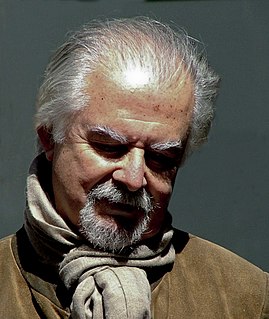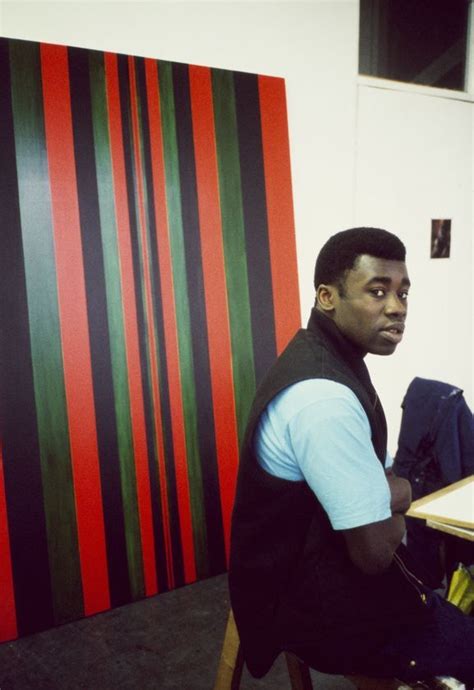A Quote by George Edward Woodberry
The growth of art seems to be in cycles, and often its vigorous lifetime is restricted to a century or two. The periods of distinctive drama, Greek, English, Spanish, fall within such a limit; the schools of painting and sculpture likewise; and, in poetry, the Victorian age or the school of Pope will serve as examples.
Related Quotes
What a contrast between the stern and desolate poetry of Ossian, and that of Chaucer, and even of Shakespeare and Milton, much more of Dryden, and Pope, and Gray! Our summer of English poetry, like the Greek and Latin before it, seems well advanced towards its fall, and laden with the fruit and foliage of the season, with bright autumnal tints, but soon the winter will scatter its myriad clustering and shading leaves, and leave only a few desolate and fibrous boughs to sustain the snow and rime, and creak in the blasts of age.
After painting comes Sculpture, a very noble art, but one that does not in the execution require the same supreme ingenuity as the art of painting, since in two most important and difficult particulars, in foreshortening and in light and shade, for which the painter has to invent a process, sculpture is helped by nature. Moreover, Sculpture does not imitate color which the painter takes pains to attune so that the shadows accompany the lights.
For me, architecture is an art the same as painting is an art or sculpture is an art. Yet, architecture moves a step beyond painting and sculpture because it is more than using materials. Architecture responds to functional outputs and environmental factors. Yet, fundamentally, it is important for me to stress the art in architecture to bring harmony.
I think I love and reverence all arts equally, only putting my own just above the others; because in it I recognize the union and culmination of my own. To me it seems as if when God conceived the world, that was Poetry; He formed it, and that was Sculpture; He colored it, and that was Painting; He peopled it with living beings, and that was the grand, divine, eternal Drama.
I suppose there is no place in the world where snobbery is quite so ever-present or where it is cultivated in such refined and subtle forms as in an English public school. Here at least one cannot say that English ‘education’ fails to do its job. You forget your Latin and Greek within a few months of leaving school — I studied Greek for eight or ten years, and now, at thirty-three, I cannot even repeat the Greek alphabet — but your snobbishness, unless you persistently root it out like the bindweed it is, sticks by you till your grave.
What is the foundation of that interest all men feel in Greek history, letters, art, and poetry, in all its periods, from the Heroic or Homeric age down to the domestic life of the Athenians and Spartans, four or five centuries later? What but this, that every man passes personally through a Grecian period.
Dancing and building are the two primary and essential arts. The art of dancing stands at the source of all the arts that expressthemselves first in the human person. The art of building, or architecture, is the beginning of all the arts that lie outside the person; and in the end they unite. Music, acting, poetry proceed in the one mighty stream; sculpture, painting, all the arts of design, in the other. There is no primary art outside these two arts, for their origin is far earlier than man himself; and dancing came first.
But what is now encompassed by the one word (“school”) are two very different kinds of institutions that, in function, finance and intention, serve entirely different roles. Both are needed for our nation’s governance. But children in one set of schools are educated to be governors; children in the other set of schools are trained for being governed. The former are given the imaginative range to mobilize ideas for economic growth; the latter are provided with the discipline to do the narrow tasks the first group will prescribe.
Some periods of our growth are so confusing that we don't even recognize that growth is happening...Those long periods when something inside ourselves seems to be waiting, holding its breath, unsure about what the next step should be, eventually become the periods we wait for, for it is in those periods that we realize that we are being prepared for the next phase of our life and that, in all probability, a new level of the personality is about to be revealed.
I have seen Colonial churches since I was very small, Colonial painting and polychrome sculpture. And that was all I saw. There was not a single modern painting in any museum, not a Picasso, not a Braque, not a Chagall. The museums had Colombian painters from the eighteenth century and, of course, I saw Pre-Columbian art. That was my exposure.
When I was painting in art school - and I think many painters in the 1980s worked similarly - a finished painting would often be constructed from lots of other paintings underneath. Some of these individual layers of painting were better than others, but that was something that you would often only realise retrospectively.
Cinema is a kind of pan-art. It can use, incorporate, engulf virtually any other art: the novel, poetry, theater, painting, sculpture, dance, music, architecture. Unlike opera, which is a (virtually) frozen art form, the cinema is and has been a fruitfully conservative medium of ideas and styles of emotions.




































